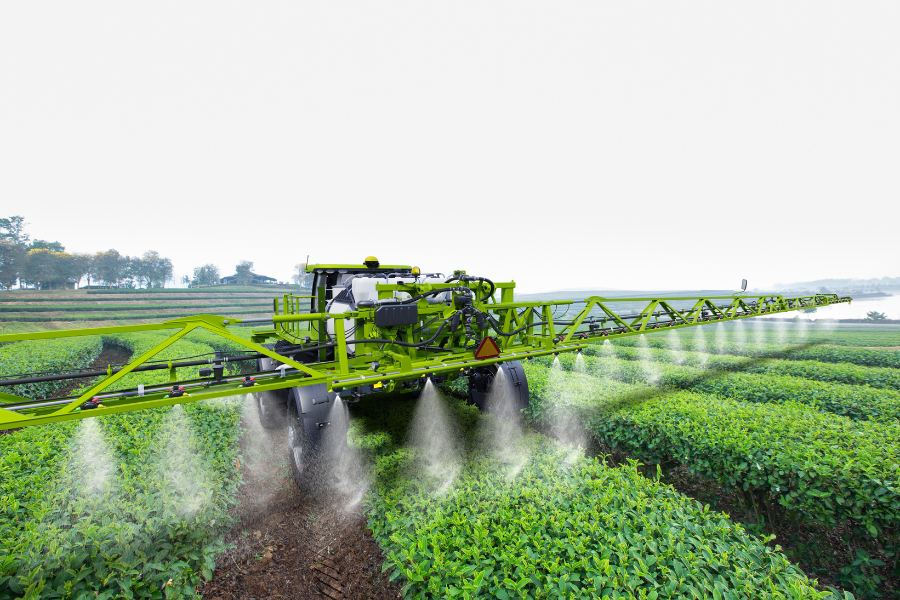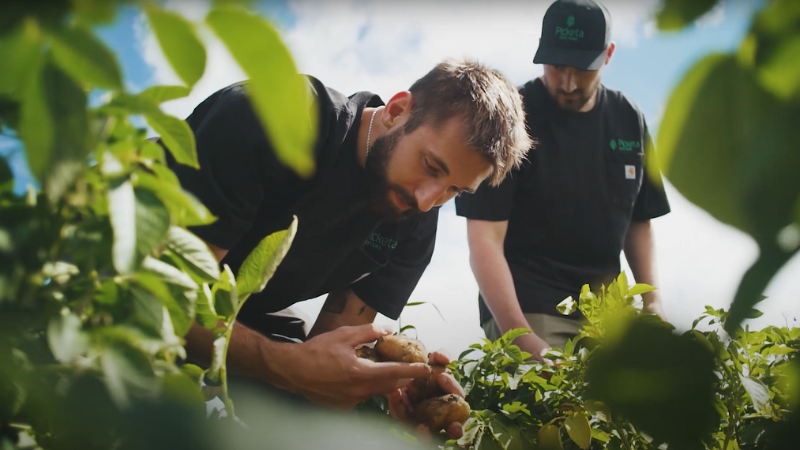Innovations in Fertilizer Management: How Technology is Making a Difference
The agricultural industry is undergoing a transformation, driven by technological advancements that are reshaping traditional practices. Among the most significant areas of innovation is fertilizer management, where new technologies are helping farmers optimize nutrient application, reduce environmental impact, and improve crop yields. In this blog, we explore these cutting-edge developments and highlight how Picketa Systems’ LENS technology is leading the way in modern nutrient management.

Historically, fertilizer management has often relied on generalized recommendations based on targeted yields and last fall’s soil samples. This approach, while somewhat effective, often leads to inefficiencies such as over-application or under-application of fertilizers, resulting in wasted resources or underperformance. Recent technological advancements are changing this landscape by enabling more precise and data-driven fertilizer management practices.
Smart Fertilizers
Smart fertilizers have dramatically improved fertilizer management practices. These advanced formulations release nutrients gradually, responding to specific environmental conditions such as soil moisture and temperature. This controlled release mechanism ensures that plants receive the right amount of nutrients at the right time, reducing nutrient losses to the environment and improving efficiency.
Examples of Smart Fertilizers:
- Polymer-Coated Urea: This type of smart fertilizer is coated with a polymer that controls the release rate of nitrogen, a key nutrient. The coating allows for a gradual release based on soil moisture levels, which helps to reduce nitrogen losses due to leaching and volatilization.
- Nano-Fertilizers: These fertilizers use nanoparticles to deliver nutrients more efficiently to plants. The small size of the particles increases the surface area, enhancing nutrient absorption and reducing the amount of fertilizer needed.
- Microbial Inoculants: These are fertilizers that include beneficial microbes which enhance nutrient availability to plants. For example, mycorrhizal fungi can improve phosphate uptake, reducing the need for phosphate fertilizers.
Internet of Things (IoT) and Automation
The integration of IoT and automation in agriculture has also transformed fertilizer management. Sensors placed in fields can monitor soil conditions in real-time, providing valuable data on moisture levels, nutrient content, and pH. Automated systems can adjust fertilizer application based on this data, ensuring optimal growing conditions, and minimizing human error.
Examples of IoT and Automation in Fertilizer Management:
- Soil Moisture Sensors: These sensors continuously measure soil moisture levels and send data to a central system. Based on this information, automated irrigation and fertilization systems can adjust water and nutrient delivery, ensuring that plants receive optimal care.
- Nutrient Monitoring Systems: Advanced sensors can monitor the concentration of specific nutrients in the soil and plant tissues.
- Automated Fertigation Systems: These systems integrate fertilization with irrigation, delivering nutrients directly through the irrigation system. By using real-time data from soil sensors, fertigation systems can adjust the nutrient concentration and timing to match plant needs precisely.
Soil moisture sensor used to monitor soil moisture variability within fields, for targeted crop management practices.
Precision Agriculture
Precision agriculture is another significant breakthrough in modern farming, utilizing data and technology to optimize every aspect of crop production, including fertilizer application. This approach uses things like GPS mapping, remote sensing, and sampling to create detailed maps that identify variations in soil fertility and crop health. These insights allow farmers to apply fertilizers more accurately, reducing waste and enhancing crop performance. One of the newest innovations in this category is the Picketa Systems LENS, a real-time plant nutrient analysis system that offers critical, timely information on crop nutrient levels, enabling growers to unlock the true power of plant tissue analysis.
How the Picketa LENS Contributes to More Efficient Fertilizer Management
Real-Time Analysis: Traditional nutrient analysis methods can take days or even weeks to deliver results. In contrast, LENS provides real-time analysis of plant tissue, allowing agronomist to make timely and informed decisions about fertilizer application. This immediate feedback ensures that crops receive the nutrients they need exactly when they need them.
Comprehensive Nutrient Profiling: LENS measures the concentrations of key macro and micronutrients in plant tissue, offering a comprehensive nutrient profile. This detailed information helps farmers understand the specific nutritional needs of their crops, enabling targeted and efficient fertilizer application.
Context Over Everything: The LENS not only simplify nutrient analysis, but also unlocks its full potential. We offer a complete understanding of your nutrient dynamics throughout the growing season by:
- highlighting and communicating deficiencies,
- contrasting the best, worst, and average-performing areas of a field, and
- tracking nutrient trends each week.

Picketa Systems LENS being used to scan leaves for real-time nutrient information.
Success Stories and Impact
In its first year of commercial deployment in 2023, LENS conducted over 3,300 leaf tissue analysis scans, saving each customer an estimated $7,000 and 100 hours of labor.
Lloyd from Taber Home and Farms describes LENS as a “lie detector” for plants, providing real-time insights that have enhanced fertilizer application timing and accuracy. This tool has become invaluable for making data-driven decisions.
In the UK, Branston Ltd has integrated the LENS into their Net Zero Project to optimize fertilizer use and reduce their carbon footprint. According to Andy Blair, Agronomist at Branston Potatoes, the LENS “allows us to feed the crop what it needs when it needs it, without having to send samples off to the lab for analysis.”

Branston Potatoes using the Picketa Systems LENS for their Net Zero Project
Conclusion
The ongoing innovations in fertilizer management hold great promise for the future of agriculture. As technology continues to evolve, we can expect even more sophisticated tools and techniques to emerge, further enhancing the efficiency and sustainability of farming practices.
At Picketa Systems, we are committed to leading this technological revolution. Our dedication to providing cutting-edge solutions like LENS reflects our belief in the power of technology to transform agriculture. By helping farmers make better fertilizer decisions, we aim to support a more productive and sustainable agricultural industry.
For more information on the LENS and how you can integrate it into your operations, contact us here, we’d be happy to show you how it works!

